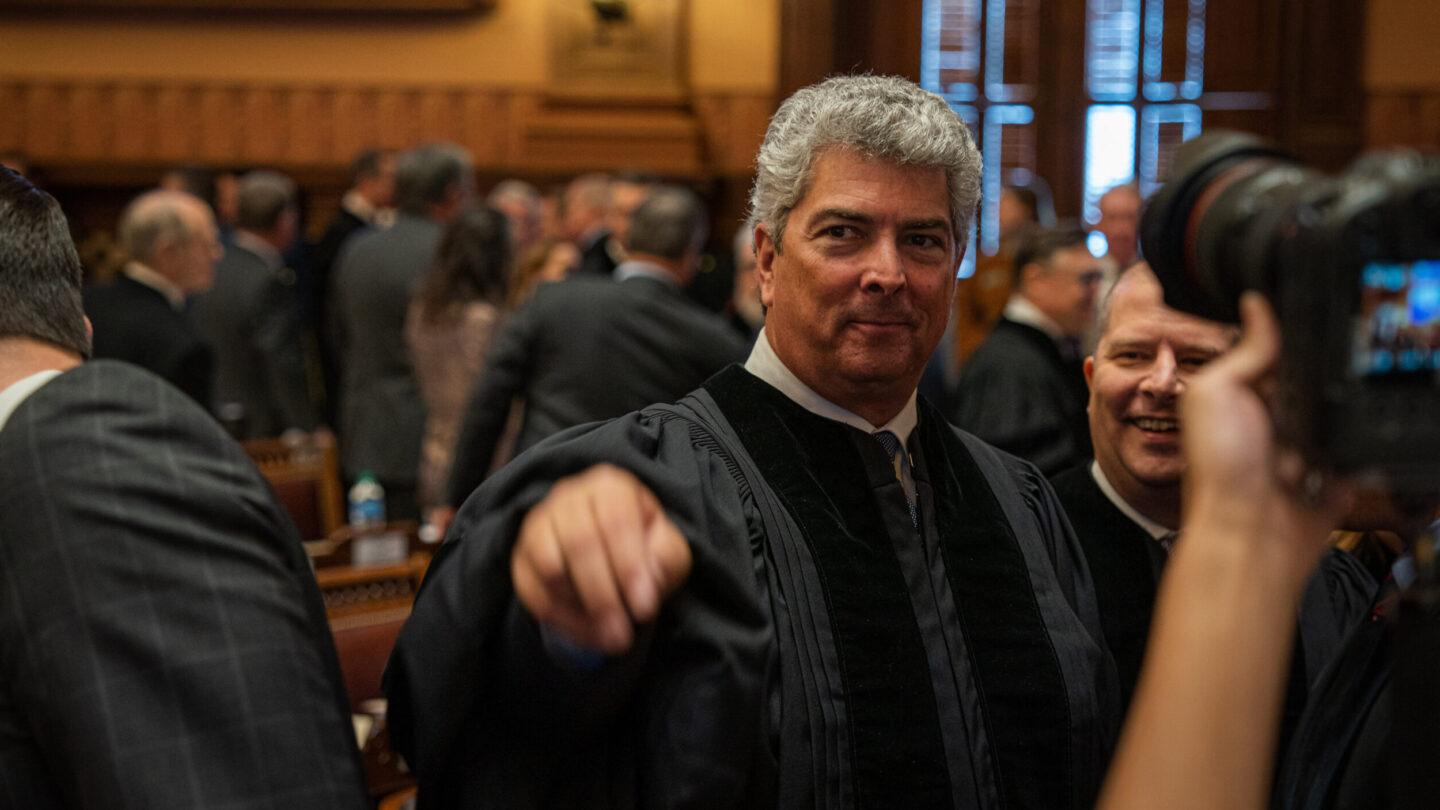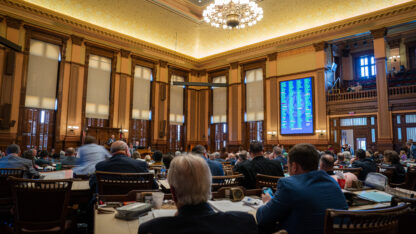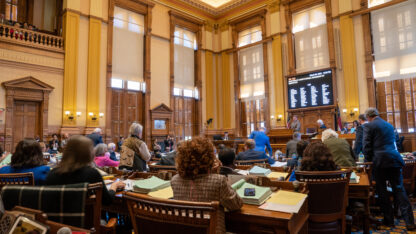Georgia chief justice says lawyer shortage slows down courts

Georgia’s courts are working hard to dig out from under a backlog of cases created and exacerbated by the coronavirus pandemic, but a shortage of lawyers is hindering some of those efforts, the state’s top judge said Wednesday.
During his State of the Judiciary address, Georgia Supreme Court Chief Justice Michael Boggs thanked members of the state House and Senate, as well as the governor, for providing funding to help the courts recover from the pandemic. Still, he said, workforce shortages persist.
Despite some challenges, the state’s judiciary remains strong, Boggs said, also using his address to highlight successes in the courts. Those include efforts to increase access to courts through remote conferencing technology, a new court for minors who are victims of human trafficking and the use of veterans courts to lower recidivism rates among that population.
“Now, some of you might think that fewer lawyers is a good thing — I won’t ask for a vote, Mr. Speaker,” Boggs joked, drawing chuckles from the lawmakers gathered in the House chamber. “But, as you all well know, the wheels of justice depend on lawyers.”
He noted that as of December, the Prosecuting Attorneys’ Council had 43 unfilled positions across the state, compared to just 11 in July 2020. Public defender offices are also struggling to find lawyers, despite recent legislation to bring parity to the starting salaries of public defenders and prosecutors, he said.
The lawyer shortage slows the process of handling criminal cases, many of which are pending, causing people to languish in jail as they await indictment or trial, Boggs said. He noted that the problem is especially acute outside of the Atlanta area and in rural parts of the state.
Civil cases — such as divorce, child custody and eviction proceedings — are also affected by the shortage of lawyers. Of the state’s 159 counties, 67 counties have 10 or fewer practicing attorneys and seven rural counties have none at all, he said.
“I think you would all agree with me that access to justice is a bedrock of our nation’s judicial system, yet the basic right of access is denied to many during their most dire life challenges,” Boggs said.
The chief justice also raised concern about the safety of the state’s judges. “Our judicial system depends on judges deciding cases without fear, this includes fear for their personal safety or the safety of their families,” he said.
The state Supreme Court has created a new committee on judicial security, chaired by High Court Justice Shawn Ellen LaGrua, to focus on security challenges facing the state’s judges. Boggs said he expects it to have recommendations for lawmakers to consider next year.








